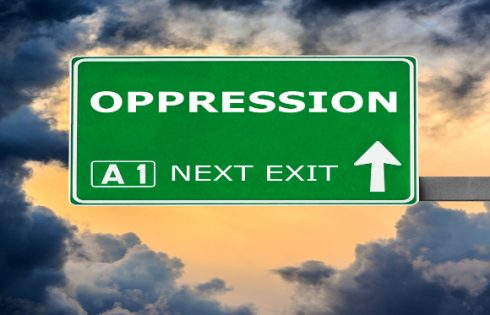Last week I reported the alarming statistic that 1 in 5 Americans can’t read at a basic level. Today I saw a related story on Drudge, in which a scientist argues that human intelligence is steadily on the decline:
Would you be surprised to hear that the human race is slowly becoming dumber, and dumber? Despite our advancements over the last tens or even hundreds of years, some ‘experts’ believe that humans are losing cognitive capabilities and becoming more emotionally unstable. One Stanford University researcher and geneticist, Dr. Gerald Crabtree, believes that our intellectual decline as a race has much to do with adverse genetic mutations. But there is more to it than that.
According to Crabtree, our cognitive and emotional capabilities are fueled and determined by the combined effort of thousands of genes. If a mutation occurred in any of of these genes, which is quite likely, then intelligence or emotional stability can be negatively impacted.
“I would wager that if an average citizen from Athens of 1000 BC were to appear suddenly among us, he or she would be among the brightest and most intellectually alive of our colleagues and companions, with a good memory, a broad range of ideas, and a clear-sighted view of important issues. Furthermore, I would guess that he or she would be among the most emotionally stable of our friends and colleagues,” the geneticist began his article in the scientific journal Trends in Genetics.
Further, the geneticist explains that people with specific adverse genetic mutations are more likely than ever to survive and live amongst the ‘strong.’ Darwin’s theory of ‘survival of the fittest’ is less applicable in today’s society, therefore those with better genes will not necessarily dominate in society as they would have in the past.
I’m not sure how air tight this scientist’s claims are, although it wouldn’t surprise me to find that humans are actually getting dumber.
What I find fascinating about stories like these is how scientists frame theories of natural selection in ways that seem counter-intuitive, or maybe even counter-logical. Evolutionary theory is flexible like that.
For example, if this scientist found evidence that humans are getting smarter, not dumber, he could reasonably say it was because evolution was making us smarter–natural selection is working by means of mating choices, etc (that’s the intuitive response). But instead he believes we are getting dumber, so he has another (counter-intuitive) theory to explain that, basically arguing that the principle of the “survival of the fittest” is breaking down in our wealthy and easy modern world. Seemingly, he could make the facts fit the theory regardless of what the facts were.
So here’s the problem: There is a strain of logic to Dr. Crabtree’s theory. But, at least to my own admittedly non-scientific mind, I read about these kinds of studies and I see this: I see logic that can be applied to a given theory equally well almost no matter what the evidence is. In other words: People are getting smarter/People are getting dumber. Natural selection is a principle that could conceivably be used to explain both.
I read about studies like this and I ask myself: Does this scientist really know what’s going on?
Life is marvelously adaptive, and yes evolutionary. But entropy is also remarkably constant. Order declines. Energy disperses. I see no explanation for the universe apart from a Creator who made all the order to begin with.
The God vs. evolution debate isn’t what I’m trying to get at here in this post. (I think certain aspects of evolutionary science actually fit with creationism quite easily.) Rather, at the moment, I’m trying to describe the sometimes murky line in modern science between logical application of a well-founded theory, and presumption.
Human genetics is the next big frontier in science, we are told. And I don’t doubt that’s true. But I do doubt whether this particular scientist really knows whether people were smarter in the ancient past. Maybe he does, maybe he doesn’t. More especially, I doubt the logic of how he applies what he knows (or thinks he knows) to evolutionary theory.
Evolutionary science these days just strikes me as so heavily deductive, rather than inductive. It’s so heavily driven by theory rather than observation. Good science is always a balance of the two. And I get worried whenever scientists get too sure that they have it all figured out. The risk of presumption is very real, and, ultimately, very human.
Again, that’s a non-scientist writing about science. So make of those thoughts what you will. If mankind really is getting dumber, then I suppose asking questions like these will eventually be a vain exercise anyway. So, hey: ask while ye may.
Click here to Like The College Fix on Facebook.






Please join the conversation about our stories on Facebook, Twitter, Instagram, Reddit, MeWe, Rumble, Gab, Minds and Gettr.